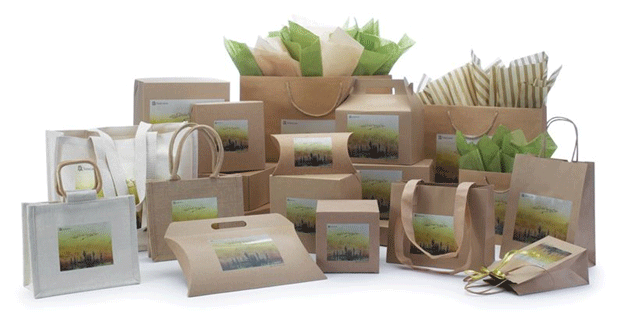In a groundbreaking collaboration, SABIC, a leader in the chemical industry, Lamb Weston, a global producer of frozen potato products, and Opackgroup, a manufacturer of flexible films, have developed sustainable packaging made from bio-renewable polyethylene (PE) sourced from used cooking oil (UCO). This initiative not only reduces environmental impact but also demonstrates how circular economy principles can be applied to food packaging.
At the heart of the new packaging is the use of bio-feedstock derived from UCO, collected directly from Lamb Weston’s production processes. This feedstock is transformed into certified bio-renewable SABIC® HDPE (high-density polyethylene) and SUPEER™ mLLDPE (metallocene linear low-density polyethylene) polymers, which form the base of the packaging materials. With at least 60% of the packaging content made from this bio-based polymer, it offers a significant step toward more sustainable food packaging solutions.
The resulting packaging features a thin coextrusion film structure, reducing its weight by 20%, with the bags weighing an average of only 10 grams. Despite this lightweight design, the materials maintain high strength and flexibility, essential for packaging pre-fried frozen potato products. Importantly, this structure ensures a 30% reduction in carbon footprint compared to the previous packaging, aligning with Lamb Weston’s sustainability goals of reducing waste, cutting carbon emissions, and moving toward circular production processes by 2030.
The packaging’s sustainability credentials are certified under the International Sustainability & Carbon Certification (ISCC) PLUS regime, ensuring transparency in the mass balance of renewable content. The ISCC PLUS certification tracks the bio-renewable content throughout the production chain, providing consumers and retailers with the confidence that the packaging meets stringent environmental standards.
Khaled Al-Jalawi, Global Director of Circular Economy Business at SABIC, emphasized the importance of this collaboration: “This closed-loop project demonstrates the circular economy in action, converting used cooking oil into circular polymers for sustainable packaging. It highlights how we can better utilize waste materials to produce high-quality, recyclable packaging solutions.”
The innovation also caters to the growing demand for sustainable packaging among retailers and consumers. Sebastiaan Besems, VP Commercial EMEA at Lamb Weston, commented: “Consumers are becoming increasingly conscious of their environmental impact. Our bio-circular retail packaging, made with 60% bio-renewable plastic from our used cooking oil, provides a responsible value proposition. It not only reduces the carbon footprint of our bags by 30%, but also aligns with consumer expectations for environmentally friendly products.”
Furthermore, Laura Hanegraaf, Sales Manager at Oerlemans Plastics, expressed the significant impact of this development within the flexible packaging industry. She highlighted that the project “solidifies efforts to promote low-carbon and renewable products. The partnership allows us to offer customers high-quality, flexible film products made from renewable materials, significantly advancing sustainable packaging practices.”
The materials used in the packaging meet all European Food Safety Authority (EFSA) and U.S. FDA food-contact requirements, ensuring that they are safe for packaging frozen food products. Following extensive testing, the first frozen potato products packed in this bio-renewable packaging were launched in September 2024 in both the UK and the Netherlands, marking the beginning of what is likely to be a growing trend in the food industry.
The collaboration between SABIC, Lamb Weston, and Opackgroup represents a significant leap toward circularity in the food packaging industry. By transforming waste into valuable packaging material, this initiative not only reduces environmental impact but also provides a practical solution for sustainable production. As consumers and retailers increasingly demand eco-friendly alternatives, innovations like this are key to driving the food industry’s sustainability goals forward. The use of bio-renewable polyethylene made from used cooking oil reduces carbon footprints, minimizes waste, and promotes a more circular economy—offering a clear path toward greener food production and packaging practices.







